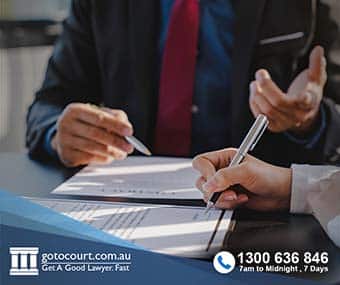Costs in Civil Matters (WA)
Legal costs should be an important commercial issue that parties should take into account at all stages of a dispute or court proceeding. This is because legal costs can end up amounting to a significant portion of a party’s claim. In some cases, particularly in matters that arise in the lower courts, costs may even exceed the value of the claim. This page explores the types of costs orders that courts in Western Australia can make, their implications and the process for claiming costs.
Types of costs orders
During legal proceedings, the two types of costs that parties can claim are party/party costs and indemnity costs. Party/party costs are claimed a lot more commonly.
Solicitor/client costs are the costs that a party has to pay to its solicitor.
Party-party costs
Party/party costs are costs that an unsuccessful party must pay to a successful party. Costs orders are usually made on a party-party basis, which is always lower than what a solicitor would charge their client.
Although the costs of every case are different, a successful party will generally be able to claim about 50-75% of their solicitor/client costs. This is because often the court’s scale of costs is lower than what lawyers actually charge their clients.
The Legal Costs Committee publishes information and tables for all Western Australian courts setting out the maximum amount of legal costs that a party can claim on a party-party basis. These scales of costs are amended regularly.
Indemnity costs
Sometimes, a court will order that a party pay indemnity costs to the other party.
Indemnity costs are all costs incurred by a party including fees, charges, disbursements, expenses and lost remuneration. An order for indemnity costs, therefore, goes well beyond legal costs and well beyond what would be recovered under an order for party/party costs.
Indemnity costs are normally only awarded in situations involving misconduct by a party. This may be where a matter has been deliberately delayed by a party in what amounts to an abuse of process or where an offer of compromise has been unreasonably rejected.
It is rare for indemnity costs to be awarded.
Costs orders for specific hearings
A typical civil litigation matter involves multiple hearings and conferences. For each hearing, the sitting judicial officer may make a costs order.
Some of the more common costs orders are as follows.
Costs in the cause
The unsuccessful party pays the costs of the successful party at the end of the proceedings.
Costs reserved
The decision as to the payment of costs and who will pay those costs will be determined at a later stage.
Costs thrown away
Unnecessary costs incurred by a party due to the other party, for example where a party had failed to appear at a hearing, adjourned the matter unnecessarily or otherwise wasted a party’s time.
Claiming costs
When a party has received a judgment in its favour, before it considers enforcing that judgment, it should calculate the amount of costs it wishes to claim from the unsuccessful party. This can be a time-consuming and expensive task. As costs estimate are often disputed, the party can try to fix the amount to be claimed by liaising with the other party.
If parties come to agreement about the amount of costs that should be awarded, an agreed set of costs is produced, and the parties can give effect to this by filing Consent Orders.
If costs cannot be agreed upon, then the party seeking costs will need to make an application to have their costs ‘assessed’ or ‘taxed’ (the terminology depends on which court the matter is in). This is a process where the successful party’s lawyer will go through their invoices and the work they have done for their client and compare this with the scale of costs for the relevant court.
The application will then need to be filed and served on the other party, who will then scrutinize it and may file objections to any of the items claimed. The matter will then go to a hearing, where the judicial officer will make the final costs determination.
As it is very important to get costs right, it is highly recommended that you obtain legal advice and instruct your lawyer to go through the costs assessment/taxation process on your behalf.
If you require legal advice or representation in any legal matter please contact Go To Court Lawyers.





